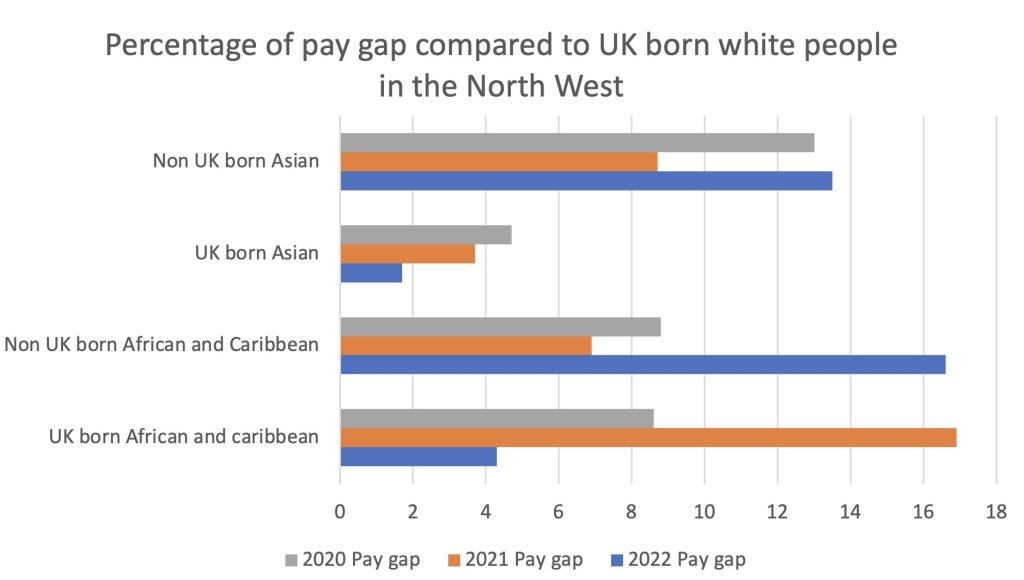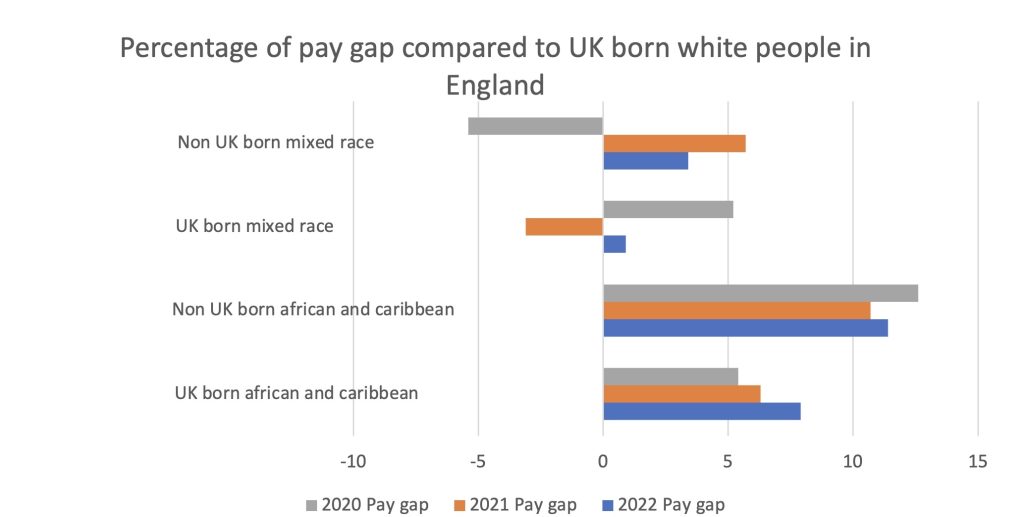Recent figures show the ethnicity pay gap increased since 2021, with African Caribbean and Asian people having the largest pay gap in the North West.
Data from the Office for National Statistics breaks down how much less each ethnicity gets paid compared to a white person born in the UK.
In 2022 in the North West, people from African or Caribbean backgrounds were paid 16.6% less than white people and 12.3% less than African or Caribbean born in the UK.
This was a large increase from 2021 where they were paid 6.9% less than UK born white people, which means there was a 9.7 percentage point increase in the pay gap.
Asian people not born in the UK are paid 13.5% less than white people born in the UK, and they are paid 11.8% less than Asians born in the UK.

Nationwide from the people born in the UK, mixed race people (half black half white) had the biggest pay gap of 20.1% in 2022.
This is a huge change from 2021 where they were even being paid more than UK born white people.
People not born in the UK with the largest pay gap in the UK of 14.6% was people from African and Caribbean backgrounds.

Ash Ahmad, a diversity, equity, and inclusion business consultant from Changing Mindsets, spoke on why the ethnicity pay gap is such an important issue.
She said: “I think we need to push a society of diversity: we can’t just do performative actions making you feel included by celebrating your culture etc. There also needs to be an equity in pay.
“If there are no ethnic minorities in leader positions then there’s not equity. Companies think having females in the workplace in senior positions is enough, but they are mostly white females.”
She added: “The government 100% needs to make some changes for the ethnicity pay gap.
“It sends a message to say to organisations that they must report on the gender pay gap, which tells them it’s important – but saying it’s not mandatory to report on the ethnicity pay gap sends a message that it’s not serious.
“Not making it a priority is fuelling bias and discrimination in organisations.”
Ahmad also said to make people more aware people should feel more comfortable talking about their pay: “There’s a taboo to not talk about pay in the workplace but there’s nothing stopping you talking about your pay.
“We have to have the conversation of why organisations have stopped them talking about pay – it’s because of the gender and ethnicity pay gap.”




